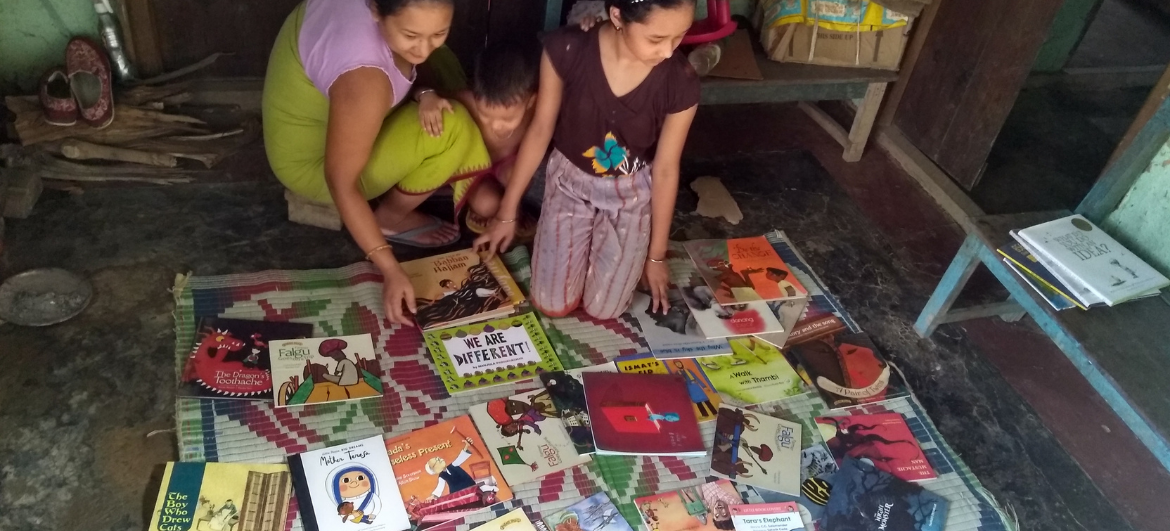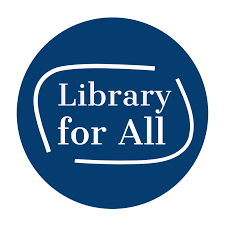Quis autem velum iure reprehe nderit. Lorem ipsum dolor sit nulla or narjusto laoreet onse ctetur adipisci.

Library for All
Supported by: Wipro
About Library for All
In Manipur, 49.6% of total children in Grade V, enrolled in government schools, cannot read simple English text from Grade II. This is a real learning crisis of the generation. Out of various other factors, one of the strong factors contributing to the alarming learning crisis is the complete absence of literacy rich environment like a library and quality teaching support in the schools. Manipur performs worst in terms of school libraries. According to ASER 2018, 91% of total schools in Manipur do not have library books at all whereas national average is 27%. This is clearly a denial of children’s right to read as entitled in Right to Education Act 2009.
Library for All strives to ensure that no child is left behind in foundational English language skills, by providing literacy rich environment and library resource-based learning contents to the schools. We envision to make a society where every child has access to equal quality of learning opportunities.
Approach
We take systemic transformation approach. Library for All is implemented with direct involvement of the government authorities to ensure sustainability of the program. Our program’s theory of change is that if we provide an adequate quantity of relevant books for reading and if we facilitate reading, children will become competent in English linguistic skills and they will perform better in their later classes. Therefore, we set up libraries and provide direct classroom support and assistance to teachers. The library books are integrated with other subject’s contents. We provide intensive classroom support using the story books from the library under a set of contents called Library-based learning, a learning concept that not only makes emergent readers become grade appropriate readers but also enhances the skills in P21’s 4C skill set- Communication, Critical Thinking, Collaboration, and Creativity.
Impact of COVID Pandemic
Ever since schools were closed, we were all prepared to respond to the situation as early as possible. The way children learn has completely changed since then. Even then, our program theory remained same- provide literacy rich environment of high-quality reading materials, accelerated English learning contents, and teaching support. We responded the situation by visiting them and delivering books and other reading materials at children’s homes. In addition to the delivery of books and practice sheets, we provided audio and video call support to the children. Later, when the situation got a little better and allowed us to move around within the community, we immediately started community reading centers. We rolled out community reading center method in 7 villages across Imphal East, Imphal West, and Ukhrul. Villages/community were East Phungreitang and Greenland villages in Ukhrul district; Monsangpantha, Japhou, Hnatham, and Modi villages in the Chandel aspirational district, and Hatta in Imphal East. It was an intensive teaching-learning process in the reading centers. Community reading centers have been what all children need for their quick learning. During COVID, we directly engaged with 180 children. We noticed children’s English language skills improve.
FUTURE 2021-22
Our future is open in two ways to intervene into- when schools open, and second, when schools are still closed for primary grades. We are fully prepared for both scenarios. If schools open for primary grades, we have Direct and Do It Yourself model of intervention. The program is more evolved than before towards achieving our end-outcomes. In case schools do not open for primary grades, as we have gained confidence in running result-oriented community reading centers, we will continue to operate these in the existing locations and will start centers in new villages across districts of Manipur, targeting children enrolled in government schools or children from economically backward families in the villages. The community reading centers are partially community-led supported by LfA initiative. A community teacher and community/village Head usually finds the most deserving students and leads the opening of the centers.

